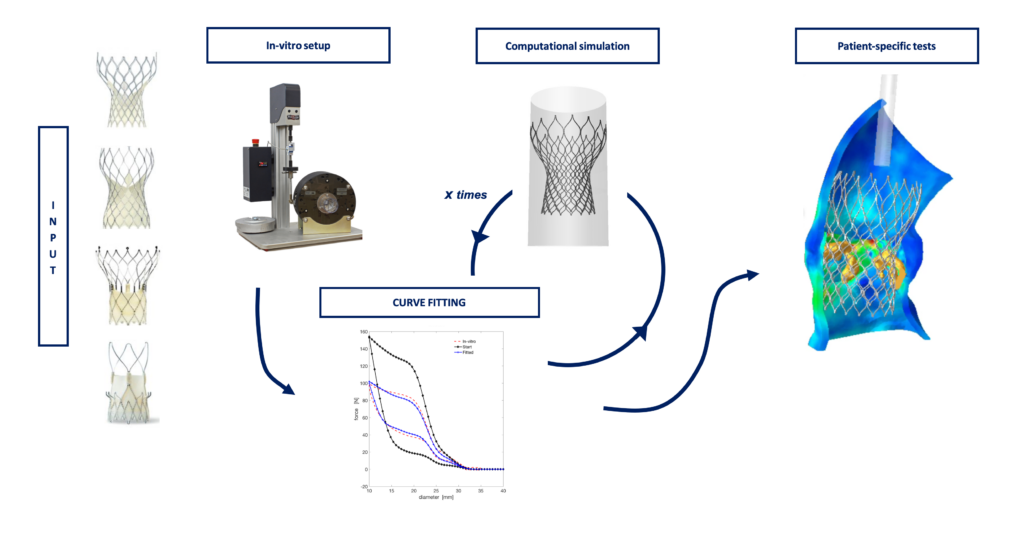Computational simulations of Transcatheter Aortic Valve Implantation (TAVI) have reached a high level of complexity and accuracy for the prediction of possible implantation scenarios during the decision-making process. However, when focusing on the prosthetic device, currently different devices are available on the market which not only have different geometries, but also different material properties.
Our CompMech group members Alice Finotello and Prof. Simone Morganti, in collaboration with the Department of Clinical and Interventional Cardiology of the IRCCS Policlinico San Donato, are working on the calibration of Nitinol constitutive parameters of four commercially-available self-expandable devices starting from experimental radial force tests on the prosthetic samples. After calibrating the Auricchio-Taylor model parameters, patient-specific simulations are also performed to investigate the impact of metallic frame parameters choice on simulation outcomes.

Fig. 1: Four commercially-available self-expandable devices (Corevalve, Evolut, Portico, and Acurate NEO) are characterized in a radial force tester machine and the obtained experimental curves are used to calibrate the Nitinol constitutive model for each device. Stent deployment into a patient-specific aortic root geometry with literature and calibrated parameters is then simulated.
July 9, 2021

